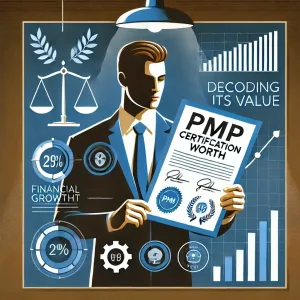Introduction to Agile Methodologies
Agile methodologies represent a transformative approach to project management that emphasizes flexibility, collaboration, and customer-centricity. At its core, Agile is defined by a set of principles that prioritize adaptive planning, evolutionary development, early delivery, and continual improvement, all while fostering a collaborative environment among cross-functional teams. The Agile Manifesto, established in 2001, outlines four fundamental values and twelve guiding principles that serve as the foundation for Agile practices. These values emphasize:
- Individuals and interactions over processes and tools.
- Working software over comprehensive documentation.
- Customer collaboration over contract negotiation.
- Responding to change over following a plan.
The evolution of Agile practices can be traced back to the need for more responsive and efficient project management methods in the face of rapidly changing market demands and technological advancements. Initially rooted in software development, Agile methodologies have expanded into various sectors, including construction, marketing, and product development. This evolution has led to the adoption of frameworks such as Scrum, Kanban, and Lean, each offering unique practices and tools to enhance project delivery and team collaboration.
In modern project environments, the significance of Agile methodologies cannot be overstated. Organizations are increasingly recognizing the need for agility to remain competitive and responsive to customer needs. Agile practices facilitate faster decision-making, improved stakeholder engagement, and enhanced product quality. By breaking projects into smaller, manageable increments, teams can adapt to changes more effectively, ensuring that the final product aligns closely with customer expectations. This adaptability is particularly crucial in today’s fast-paced business landscape, where the ability to pivot quickly can determine a project’s success or failure.
As Agile methodologies continue to gain traction, the role of project management contractors becomes increasingly relevant. These contractors bring specialized expertise and a fresh perspective to Agile teams, helping organizations implement Agile practices effectively and navigate the complexities of project management in an Agile context. Their involvement can enhance the overall performance of Agile projects, ensuring that teams remain focused on delivering value while adapting to the dynamic nature of modern project environments.
Understanding the Role of Project Management Contractors
Particularly within Agile methodologies, the role of project management contractors has become increasingly significant. These professionals bring a unique set of skills and flexibility that can greatly enhance project execution. Below, we explore the definition, responsibilities, and benefits of hiring project management contractors, as well as how they differ from full-time project managers.
Definition and Responsibilities of Project Management Contractors
Project management contractors are external professionals hired to oversee specific projects or components of projects. They are typically engaged on a temporary basis and are responsible for:
- Project Planning and Execution: Contractors develop project plans, set timelines, and ensure that project milestones are met. They work closely with teams to facilitate Agile practices, such as sprints and stand-ups, ensuring that the project remains on track.
- Stakeholder Management: They identify and engage stakeholders, ensuring that their needs and expectations are addressed throughout the project lifecycle.
- Resource Allocation: Contractors assess the resources required for the project and manage their allocation effectively, ensuring that the team has what it needs to succeed.
- Risk Management: They identify potential risks and develop mitigation strategies to minimize their impact on project outcomes.
Differentiating Contractors from Full-Time Project Managers
While both project management contractors and full-time project managers share similar responsibilities, there are key differences between the two:
- Employment Status: Contractors are typically self-employed or work for a consulting firm, while full-time project managers are employees of the organization. This distinction affects their availability and commitment to the organization.
- Duration of Engagement: Contractors are usually hired for specific projects or for a limited time, whereas full-time project managers are involved in ongoing projects and organizational strategy.
- Flexibility and Specialization: Contractors often bring specialized skills and experience from various industries, allowing them to adapt quickly to different project environments. Full-time project managers may have a deeper understanding of the organization’s culture and long-term goals.
Benefits of Hiring Project Management Contractors
Engaging project management contractors can offer several advantages, particularly in Agile environments:
- Cost-Effectiveness: Hiring contractors can be more economical than employing full-time staff, especially for short-term projects. Organizations can save on benefits and overhead costs associated with permanent employees.
- Access to Expertise: Contractors often possess specialized knowledge and experience that can be invaluable for specific projects. Their fresh perspectives can lead to innovative solutions and improved project outcomes.
- Increased Flexibility: Contractors can be brought in as needed, allowing organizations to scale their project management resources up or down based on project demands. This flexibility is particularly beneficial in Agile methodologies, where project scopes can change rapidly.
- Focus on Core Activities: By outsourcing project management tasks to contractors, organizations can allow their internal teams to concentrate on their core responsibilities, enhancing overall productivity.
The Intersection of Project Management Contractors and Agile Practices
Within Agile methodologies, the role of project management contractors has become increasingly significant. As organizations strive for flexibility and responsiveness, contractors can offer unique advantages that align well with Agile principles. This section explores how contractors can effectively integrate into Agile teams, adapting to roles and responsibilities while enhancing project outcomes.
Adapting to Agile Roles and Responsibilities
Contractors entering Agile environments must be prepared to embrace the core values of Agile, which emphasize collaboration, customer feedback, and iterative progress. Here are some ways contractors can adapt:
- Understanding Agile Frameworks: Contractors should familiarize themselves with various Agile frameworks such as Scrum, Kanban, or Lean. This knowledge allows them to align their work with the team’s processes and contribute effectively to sprints and iterations.
- Embracing Team Dynamics: Agile methodologies rely heavily on teamwork and communication. Contractors must be willing to engage with team members, participate in daily stand-ups, and contribute to retrospectives, ensuring they are integrated into the team culture.
- Taking on Diverse Roles: In Agile settings, roles can be fluid. Contractors may need to shift between roles such as Scrum Master, Product Owner, or team member, depending on project needs. This versatility is crucial for maintaining momentum and addressing challenges as they arise.
Flexibility in Dynamic Agile Environments
One of the hallmarks of Agile methodologies is their adaptability to change. Contractors inherently bring a level of flexibility that can be beneficial in such environments:
- Rapid Onboarding: Contractors often have experience working across various projects and industries, allowing them to quickly understand project requirements and integrate into teams without extensive training.
- Scalability: Agile projects can experience fluctuations in workload. Contractors can be brought in to scale resources up or down as needed, providing teams with the ability to respond to changing project demands without the long-term commitment of permanent hires.
- Specialized Skills: Contractors can offer specialized skills that may not be available within the existing team. This expertise can be critical in addressing specific challenges or enhancing project capabilities, particularly in technical or niche areas.
Examples of Successful Contractor Integration in Agile Projects
Several organizations have successfully integrated contractors into their Agile teams, demonstrating the value they can bring:
- Tech Startups: Many tech startups leverage contractors to fill gaps in expertise during critical phases of product development. For instance, a startup may hire a contractor with specific software development skills to assist during a sprint focused on feature enhancement, allowing the core team to maintain focus on broader project goals.
- Consulting Firms: Consulting firms often employ contractors to manage Agile transformations for their clients. These contractors can provide insights and best practices from previous projects, helping client teams adopt Agile methodologies more effectively.
- Large Enterprises: In large enterprises, contractors can be utilized to lead Agile training sessions or workshops, equipping internal teams with the knowledge and skills necessary to implement Agile practices. This approach not only enhances team capabilities but also fosters a culture of continuous improvement.
Benefits of Utilizing Project Management Contractors in Agile Projects
The integration of project management contractors can significantly enhance the effectiveness and efficiency of project execution. Here are some key benefits of employing contractors within Agile frameworks:
- Cost-Effectiveness and Resource Allocation: Utilizing project management contractors can lead to substantial cost savings. Contractors often provide flexibility in resource allocation, allowing organizations to scale their teams up or down based on project needs without the long-term financial commitment associated with full-time hires. This adaptability is particularly beneficial in Agile environments, where project scopes can evolve rapidly, necessitating a dynamic approach to resource management [1][4].
- Specialized Skills and Knowledge: Contractors frequently bring specialized skills and expertise that may not be available within the existing team. This is especially valuable in Agile projects that require specific technical knowledge or industry experience. By integrating contractors with niche skills, organizations can enhance their project capabilities, ensuring that the team is well-equipped to tackle complex challenges and deliver high-quality outcomes [2][3].
- Fresh Perspectives and Diverse Experiences: The inclusion of project management contractors can introduce new ideas and methodologies to the team. Their diverse backgrounds and experiences can foster innovation and creativity, which are essential components of Agile practices. This fresh perspective can help teams identify potential pitfalls, explore alternative solutions, and ultimately drive better project results. Moreover, contractors can challenge the status quo, encouraging teams to think outside the box and embrace continuous improvement [5][6].
Challenges Faced by Project Management Contractors in Agile Settings
Project management contractors play a crucial role in Agile methodologies, often bringing specialized skills and fresh perspectives to teams. However, they also encounter unique challenges that can impact the effectiveness of Agile practices. Here are some of the key obstacles they may face:
- Aligning with Existing Agile Team Dynamics: One of the primary challenges for contractors is integrating into established Agile teams. Agile environments thrive on collaboration, trust, and shared understanding among team members. Contractors may struggle to align with the existing team dynamics, which can lead to friction and hinder productivity. This misalignment can stem from differences in work styles, communication preferences, or varying levels of Agile experience among team members [1][2].
- Communication Gaps: Effective communication is vital in Agile settings, where rapid feedback and iterative processes are essential. Contractors may experience communication gaps with full-time staff, particularly if they are not fully embedded in the team. These gaps can arise from differences in terminology, understanding of Agile principles, or simply the lack of familiarity with the team’s culture. Such barriers can lead to misunderstandings, delays in project progress, and a decrease in overall team cohesion [3][4].
- Adapting to Agile Practices and Tools: Agile methodologies require a specific mindset and familiarity with various tools and practices, such as Scrum, Kanban, or continuous integration. Contractors must quickly adapt to these practices to contribute effectively. This can be challenging, especially if they come from a more traditional project management background. The need for rapid adaptation can create pressure, as contractors must not only learn the Agile framework but also understand the specific nuances of the team’s implementation [5][6].
Best Practices for Project Management Contractors in Agile Methodologies
Contractors ability to adapt to Agile principles and collaborate effectively with teams can significantly influence project outcomes. Here are some actionable strategies for contractors to thrive in Agile environments:
1. Embrace Continuous Learning and Adaptation
- Stay Updated on Agile Principles: Contractors should actively engage in learning opportunities related to Agile methodologies. This includes attending workshops, webinars, and obtaining certifications that deepen their understanding of Agile practices. Continuous learning helps contractors remain relevant and effective in their roles.
- Adapt to Change: Agile is inherently about flexibility and responsiveness. Contractors must cultivate a mindset that embraces change, allowing them to pivot quickly in response to evolving project requirements or stakeholder feedback. This adaptability is crucial for maintaining project momentum and meeting client expectations.
2. Foster Open Communication and Collaboration
- Establish Clear Communication Channels: Effective communication is the backbone of Agile methodologies. Contractors should prioritize establishing clear and open lines of communication with team members and stakeholders. This can be achieved through regular stand-up meetings, retrospectives, and utilizing collaborative tools that facilitate real-time updates and feedback.
- Encourage Team Collaboration: Contractors should actively participate in team activities and foster a collaborative environment. This includes engaging in brainstorming sessions, sharing insights, and being receptive to team members’ ideas. By promoting a culture of collaboration, contractors can enhance team cohesion and drive project success.
3. Utilize Tools and Techniques for Integration
- Adopt Agile Project Management Tools: Utilizing tools such as Jira, Trello, or Asana can significantly enhance a contractor’s ability to integrate into Agile projects. These tools facilitate task management, progress tracking, and team collaboration, making it easier for contractors to align with project goals and timelines.
- Implement Visual Management Techniques: Techniques such as Kanban boards or Scrum boards can help contractors visualize project workflows and identify bottlenecks. By employing these visual management strategies, contractors can better understand project dynamics and contribute to more efficient processes.
4. Prioritize Customer Involvement
- Engage with Stakeholders: Contractors should prioritize regular interactions with clients and stakeholders to gather feedback and ensure alignment with project objectives. This engagement not only helps in refining project deliverables but also builds trust and transparency between contractors and clients.
- Incorporate Feedback Loops: Establishing feedback loops is essential in Agile environments. Contractors should encourage and facilitate regular feedback sessions, allowing for continuous improvement and adjustments based on stakeholder input. This iterative approach ensures that the project remains aligned with client expectations throughout its lifecycle.
By implementing these best practices, project management contractors can effectively navigate the complexities of Agile methodologies, fostering a collaborative and adaptive environment that drives project success. Emphasizing continuous learning, open communication, and the use of effective tools will empower contractors to thrive in Agile settings, ultimately leading to enhanced project outcomes and satisfied clients.
Conclusion: The Future of Project Management Contractors in Agile
As organizations increasingly adopt Agile methodologies, the role of project management contractors is becoming more significant. These contractors bring specialized skills and flexibility that are essential in navigating the dynamic landscape of Agile project management. Here are some key points to consider regarding the future of project management contractors in Agile practices:
- Importance of Project Management Contractors: Project management contractors play a crucial role in Agile methodologies by providing expertise that enhances team performance and project outcomes. Their ability to adapt to changing project requirements and facilitate collaboration among team members is vital for the success of Agile projects. This adaptability allows organizations to respond swiftly to market changes and customer feedback, which are core principles of Agile practices [2][7].
- Emerging Trends: The landscape of project management is evolving, with several trends shaping the future of contractors in Agile environments. The integration of automation and artificial intelligence is streamlining project management processes, allowing contractors to focus on strategic tasks rather than routine activities. Additionally, the rise of hybrid methodologies, which combine Agile with traditional project management practices, is creating new opportunities for contractors to leverage their skills in diverse settings [5][6]. Furthermore, the increasing emphasis on emotional intelligence within teams highlights the need for contractors who can foster strong interpersonal relationships and effective communication [2].
- Encouraging Collaboration: Agile coaches and project managers are encouraged to embrace collaboration with project management contractors. By leveraging the unique strengths of contractors, teams can enhance their agility and responsiveness. This collaboration not only enriches the project management process but also fosters a culture of continuous improvement and innovation. Agile coaches should advocate for the integration of contractors into their teams, recognizing that their diverse experiences and perspectives can lead to more successful project outcomes [3][4].
In summary, the future of project management contractors in Agile methodologies is promising. As organizations continue to evolve and adapt to new challenges, the collaboration between Agile teams and contractors will be essential in driving project success. Embracing this partnership will not only enhance project delivery but also contribute to the overall growth and development of Agile practices within organizations.
Find out more about Shaun Stoltz https://www.shaunstoltz.com/about/.
This post was written by an AI and reviewed/edited by a human.


